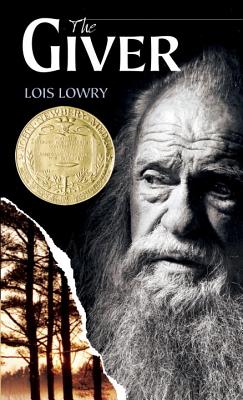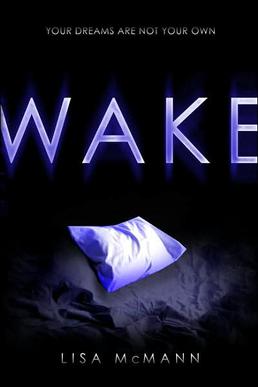
The Help by Kathryn Stockett
*read by Jenna Lamia, Bahni Turpin, Octavia Spencer, and Cassandra Campbell on audiobook
“Everyone knows how we white people feel, the glorified Mammy figure who dedicates her whole life to a white family. Margaret Mitchell covered that. But no one ever asked Mammy how she felt about it.” ― Kathryn Stockett, The Help
Well, Mammy's still waiting for someone to ask her...
I started out listening to the audiobook of The Help on a six hour trip back from Pensacola Beach. I was never really excited to read it, because I usually don't find myself enjoying many of the mainstream best-sellers in women's fiction - or "chick lit" I like to call it. It happened to be the only book available to check out on my online library account at the time, so when my companion and I were finally bored enough on our drive home, we turned it on. Right away, we were both entertained. The narrators all did an exceptional job, and the narrator for Minny even went on to play her in the movie.
I'm not going to waste time summarizing the story, because just about everyone's read it or seen the movie, or at least know the premise.** I'm just going to jump in with my reaction, so I apologize for any spoilers I may reveal. The Help is definitely an entertaining read. The characters are well-developed, and I felt invested in their stories. Should this book be considered a champion of the civil rights movement and the victorious black women of the South? Heavens, no. It was, after all, written by a white woman, Kathryn Stockett, who, like Skeeter, grew up in Mississippi. Stockett was also sued by her own brother's housekeeper for using her likeness to create the character Aibileen. The suit was only thrown out due to a statute of limitations. The character of Skeeter is not interested, nor does she know much about, the black woman's struggle under the Jim Crow era, and only initially decides to create a book about black housekeepers in Jackson because she has a dream to be published. The character Aibileen in the story is even responsible for giving Skeeter the idea to write the book. So why anyone would mistake Skeeter as the heroine of the story is beyond me. Aibileen and Minny risk their jobs and safety to write this book. Skeeter risks being ostracized from Hilly's League. Her biggest worries are getting her hair to straighten and to find a man to marry so that her mother will stop pestering her. Skeeter is merely the editor of the book, so it bugs me that she takes so much credit for it.
Things That Also Bothered Me
Aibileen - I can't believe Aibileen would be truly sorry to leave her job working for Elizabeth. She's sad to leave Mae Mobley and perhaps the steady income, but I would think she'd be jumping for joy to be rid of those women and their bridge club lunches. Plus, she gets a job writing for the paper, and there's potential their book will bring in more money as time goes on.
Minny - Minny's story was my favorite to read. She's a strong, outspoken woman full of sass, so I was surprised that she suffered from spousal abuse. She addresses it in the end of why she doesn't fight back, and eventually leaves Leroy, but I have to wonder why the author thought it was necessary to put this in. It seems that it's only the black men who are seen doing the abusing and leaving and not the white men. I'm not sure what the author's message is here.
Skeeter - Beyond what issues I already have with this character, I can't understand her friendship with Hilly. Skeeter speaks in a disparaging manner about her closest friend, and can't trust her to not snoop in her satchel, and yet because they've been friends since childhood, she reasons that's justification enough to have stayed her friend so long. Also, the storyline with Stuart seemed nothing more than a way to show the "sacrifices" Skeeter makes for her
Plot plunks - There were a lot of plot secrets Stockett used to keep the story intriguing: What is wrong with Celia? What happened to Constantine? What was the "horrible thing" that Stuart's ex-fiance did? And all of them were either predictable, overly-dramatized, or both.
Overall, I don't discourage anyone from reading this book. It is an entertaining read, probably more so as audiobook, but please take it as the work of fiction that it is and not a revolutionary memoir of the Jim Crow south.
**After spending the holiday at my grandmother's house, I feel obliged to mention the premise, as she had heard about the book from her friends and tried to download it on her Nook, only to have accidentally downloaded The Help, A Novel, or The Secret Confessions of a Traditional Housekeeper by Shay Arthur. She complained, "I don't know why everyone says that book is good. I thought it was so boring." She started to tell us about the plot, and that's when we realized she had purchased the wrong book.
The Help is told from the point of view of three women: Aibileen, a housekeeper in Jackson, MS who has worked her whole life working in white people's homes and raising their babies; Minny, Aibileen's friend and fellow housekeeper who gets in trouble for her sass-talking, and Skeeter, a recent college graduate who is a socialite and friend of the women Minny and Aibileen work for. Skeeter's dream is to become either a writer or journalist, and by way of talking with Aibileen, decides she wants to write about housekeepers' experiences working in the south.
I apologize if this review is not the most cohesive. I wrote it over the span of my week on Thanksgiving holiday - ten minutes here and there.






